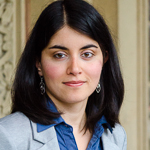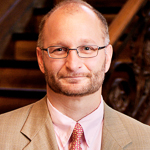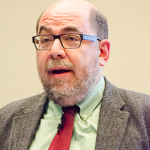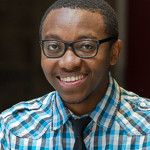Professors and students offer their thoughts on current legal issues, as featured in the Montreal Gazette and La Presse, on subjects including life without parole, intellectual property, and international human rights.
An open letter about investor-state dispute settlement
 Professor Andrea Bjorklund, along with Professors Payam Akhavan, Frédéric Bachand, Armand de Mestral, Fabrien Gélinas, et al.
Professor Andrea Bjorklund, along with Professors Payam Akhavan, Frédéric Bachand, Armand de Mestral, Fabrien Gélinas, et al.
April 10, 2015
Dear Majority Leader McConnell, Minority Leader Reid, Speaker Boehner, Minority Leader Pelosi, and Ambassador Froman:
We the undersigned—professors and scholars of international law, arbitration, and dispute settlement—strongly support a robust, even-handed, and careful discussion about investment treaty arbitration (ITA), which is sometimes referred to as investor-state dispute settlement (ISDS). We believe, however, that the discussion should be based on facts and balanced representations, rather than on errors or skewed information.
To that end, we offer the following responses to the letter circulated by the Alliance for Justice. [KEEP READING]
Life Without Parole Sentencing Violates Human Rights
 Prof. Marie Manikis
Prof. Marie Manikis
Montreal Gazette, April 1, 2015
The Harper government introduced a bill last month that repeals the possibility of parole for offenders convicted of first-degree murder, including anyone who kills a police or jail guard, as well as anyone who kills during sexual assault or kidnapping.
In effect, the removal of parole means that offenders will no longer have any prospect of release. Once they are sentenced to life without parole, they will be engulfed behind prison bars until they die. Such a form of punishment violates basic human rights… [KEEP READING] (PDF file)
Le Recteur Brière a raison
 Le professeur David Lametti
Le professeur David Lametti
La Presse, section Débats, 17 mars 2015
En surréclamant les droits d’auteur et en brandissant la menace d’une poursuite contre l’Université Laval, COPIBEC exagère la portée de ces droits.
Dans un communiqué récent, plusieurs auteurs québécois de renom ont critiqué le recteur de l’Université Laval pour sa décision de ne pas renouveler le contrat entre l’Université et COPIBEC (Société québécoise de gestion collective des droits de reproduction), et même de se défendre dans le cadre d’un litige initié par COPIBEC au nom de ses auteurs. Les auteurs prétendent subir une atteinte à leurs droits d’auteur et déclarent que le recteur Denis Brière devrait agir décemment et payer. [CONTINUER] (fichier PDF)
What Did Loyola Really Decide?
 Professor Daniel Weinstock
Professor Daniel Weinstock
In Due Course blog, March 21, 2015
My first serious engagement in public policy matters occurred in 1997 when I was asked to join the Groupe de travail sur la place de la religion à l’école publique du Québec. Our mandate was to reflect on the place that religious teaching should have in Quebec’s public schools. Quebec was already in the process of eliminating religious school boards, but that administrative measure left untouched the content of religious teaching in Quebec’s public schools. Parents of a certain age will remember that for a number of years, they were required to tick off a box when signing their kids up for school indicating whether they wanted them to receive Catholic religious teaching, Protestant religious teaching, or non-confessional moral education. [KEEP READING]
Why not take the Supreme Court’s religious-studies ruling into the classroom?
 Professor Shauna Van Praagh
Professor Shauna Van Praagh
The Globe and Mail, March 19, 2015
On Thursday, the Supreme Court of Canada ruled that a Jesuit high school in Montreal could replace the provincially mandated and faith-neutral “Ethics and Religious Culture” program with a frankly confessional version. Even if anchored in and infused with one faith, the educational program can satisfy government requirements as long as it treats and teaches other religious traditions and communities with respect, the court concluded. Opposition parties are questioning how Stephen Harper’s government will respond to a Supreme Court ruling in favour of doctor-assisted dying. The prime minister says Canadians will be consulted on what he calls a “divisive” issue.
The Loyola High School decision signals that there is official space for variations on a central theme. But those variations aren’t in the hands of the Court; they will depend on actors and conversations at the heart of the school board’s religion program itself. [KEEP READING]
Student voices
Canada should encourage Rwandan genocide survivors to pursue post-secondary education
 Moses Gashirabake, BCL/LLB student
Moses Gashirabake, BCL/LLB student
Montreal Gazette, April 7, 2015
Canada’s parliamentary subcommittee on international human rights is presently exploring long-term effects on survivors and children born of rape after the 1994 genocide in Rwanda. As a lucky survivor of that genocide, I am deeply appreciative of my new country’s efforts. Canada, however, can do more.
This year, April 7 marks 21 years since the start of the atrocious genocide that cost 1 million Rwandans their lives and left behind countless wounded survivors. Today, some of those survivors, like me, call Canada home. Those survivors of the 1994 slaughter in Rwanda face varying degrees of social, economic and psychological challenges. [KEEP READING] (PDF File)
